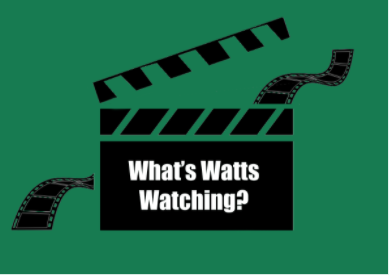
TW: This article discusses school shootings
There are certain topics that are nearly impossible to discuss in a movie without coming across as insensitive or distasteful. School shootings are one of those topics. In 2003, Gus Van Sant’s Elephant followed the lives of a number of high school students before they met their tragic end in a school shooting. The film was received well critically, but sparked controversy with some believing it inspired more violence, cementing school shootings as taboo in movies. The Fallout does the opposite of Elephant and follows the lives of three students and their families in the weeks after a school shooting.
The Fallout begins with a normal morning for a high school student. After receiving a phone call from her little sister, Vada (Jenna Ortega) goes to the bathroom and the unthinkable happens. Shots ring out and Vada, Mia (played by Maddie Ziegler of Dance Moms fame) and Quinton (Niles Fitch) hide in a stall together and wait for the attack to end.
The strength of the film is in the emotion generated by its stellar cast and performances. Jenna Ortega is incredible in her role, proving once again that she’s a dependable lead. The subtle mannerisms Ortega utilizes show all of the conflicting and complex emotions that someone would go through after having such a traumatic experience.
Niles Fitch is also amazing in his role as Quinton. Quinton’s brother is killed in the shooting and experiences a lot of survivor’s guilt. The entire cast of characters share that emotion, feeling that they must have survived the shooting for some larger purpose. I was surprised that writer/director Megan Park didn’t shy away from those emotions, and thought it added a lot of depth to the film.
I also appreciated all of the different ways the characters displayed their grief. Vada’s best friend responds to the shooting as an opportunity to make an impact on the world. He speaks out in favor of gun control, but sidelines his friends in the process. Vada relies on the bond that she formed with Mia and Quinton during the shooting, and they’re all able to give each other some comfort in their time of need. Quinton keeps to himself and is grieving silently, even if he may seem fine on the surface. Mia depends on drinking to relieve her fear to leave her house. All of the different ways that the characters grieve are shown as normal, and I think Park did a fantastic job showing how everybody handles trauma differently.
My biggest issue with the film was its incessant use of texts. Even though it’s perfectly normal for the kids to be texting throughout the movie, the big, cartoonish, text bubbles that pop up on top of the blank space in a shot are terrible. It’s distracting and takes away from the emotional gravity of the situation. I understand movies wanting to display texts because of how important they are to modern communication, but a simple shot of the texts on the phone would suffice.
Vada’s relationships with each of her parents is also very cliché. She throws temper tantrums any time her mother tries to get involved in her life, which may be realistic but felt over the top. There’s also a scene with Vada’s dad that was incredibly cringey and tired as the two screamed out their frustrations in an open field.
The best relationship in the movie, though, is Vada and her younger sister Amelia (played by Lumi Pollack). With Vada isolating herself from her family after the incident, Amelia loses an incredibly important person in her life. Pollack gives a surprisingly touching performance in her first major feature film, and I loved the chemistry she had with Ortega.
The Fallout handled the topic of school shootings just about perfectly. Despite some of its overdone tropes and awkward scenes, The Fallout’s emotions and call for change make the movie work.
The Fallout is now streaming on HBO Max and I hope it reaches as many people as possible. I know that this movie had a tremendous impact on me, and I recommend it to everybody, no matter how difficult it may be to sit through at times.
4/5 Stars
